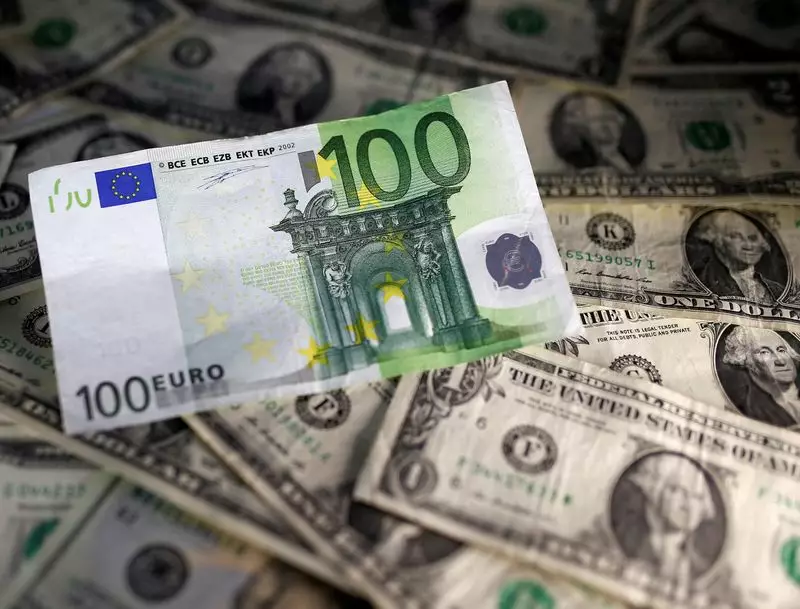In recent weeks, financial markets have faced a tumultuous landscape characterized by political instability and fluctuating economic indicators. The euro, long considered a pillar of the European economy, has shown weakness following the anticipated collapse of the French government. Meanwhile, a stark contrast has emerged in the cryptocurrency realm, with Bitcoin surging past the remarkable threshold of $100,000, instigating a renewed interest and confidence among investors. This juxtaposition exemplifies two divergent financial narratives shaped by broader economic undercurrents and political dynamics.
The recent ascent of Bitcoin is compelling, raising many questions about market confidence in traditional currencies like the euro. The cryptocurrency has gained momentum since November, which many analysts attribute to a perceived shift towards a more favorable regulatory environment under the incoming U.S. administration. As it hit an impressive $101,626 in Asian trading, a 138% surge in year-to-date gains was recorded. Kyle Rodda, a senior market analyst, highlighted the significant “tailwinds” that might propel Bitcoin’s pricing further, citing a global aversion to fiat currencies and increased geopolitical risks as major factors bolstering its appeal.
Conversely, the euro has suffered setbacks, trading at around $1.052175—hovering close to its two-year low of $1.03315. The driving force behind this downturn encompasses the fallout from the no-confidence vote that has precipitated a political vacuum in France. Analysts suggest that the repercussions of this political crisis are substantial and may jeopardize the country’s ability to address its considerable budget deficit. The uncertainty surrounding France’s political landscape looms large, likely discouraging both consumer and business confidence in the short to medium term.
Charlotte de Montpellier, an economist at ING, elaborated on the ramifications of this instability, contending that the selection of a new prime minister who would avoid facing further no-confidence motions is fraught with difficulty. Given these circumstances, it could take weeks or even months for France to stabilize its government. With the European Central Bank (ECB) under pressure to provide support amidst market volatility, ECB President Christine Lagarde’s statements have done little to assuage fears of prolonged economic stagnation.
The Asian markets reflect similar uncertainties. The South Korean won has been unstable, exacerbated by the government’s decision to activate a significant market stabilization fund in light of chaotic political developments. South Korea’s finance ministry announced a strategy to deploy approximately 40 trillion won ($28.35 billion) to stabilize the markets following President Yoon Suk Yeol’s tumultuous handling of martial law declarations. This political misstep has prompted proposals for his impeachment, further threatening economic stability.
In Asia, the Japanese yen has shown faint signs of strength, possibly signaling market expectations regarding potential interest rate adjustments by the Bank of Japan. Current speculation around a 60% likelihood of a rate hike resonates poorly amidst the broader context of economic uncertainty, illustrating how fragile investor sentiment is across the region.
Meanwhile, the narrative in the United States has seen a mixed bag in terms of investor confidence relating to Federal Reserve interest rate cuts. Although Jerome Powell’s remarks suggested a cautious approach to future rates amidst economic resilience, the upcoming non-farm payrolls report is set to escalate expectations regarding employment numbers. Analysts predict an increase of around 200,000 jobs in November, a positive sign after troubling reports that indicated job growth had plummeted to the lowest figures seen since December 2020.
The unfolding drama of recent political developments, particularly in France, coupled with the volatile state of currencies like the euro, provides a vivid picture of the global financial landscape. Conversely, Bitcoin’s remarkable ascent reflects strong market confidence in alternative assets, particularly during times of traditional economic uncertainty. Investors must navigate a complex web of sentiments as political disruptions shape economic futures, both in Europe and beyond, while remaining alert to the promising yet unpredictable trajectories offered by cryptocurrencies and innovative financial instruments. This stark duality exemplifies the inherent challenges and opportunities present in today’s economic climate, suggesting that adaptability and informed decision-making may be crucial for financial success.

